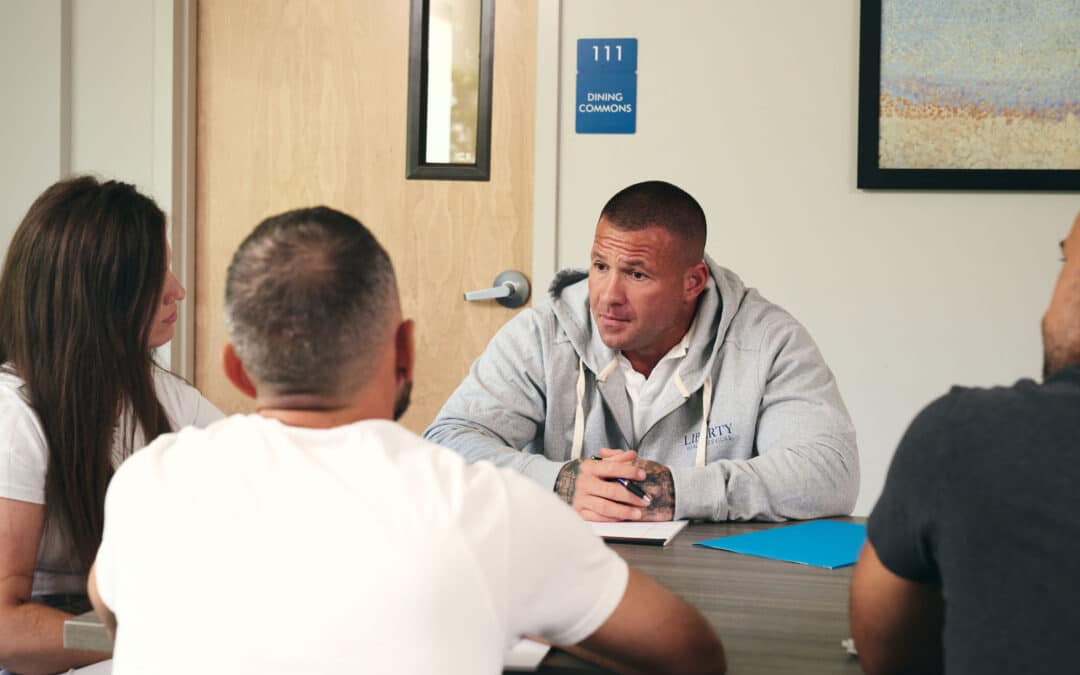Today, people across the country attempt to detox at home. Detox is the first and most important step of recovery. This physically, mentally, and emotionally challenging time can be difficult to manage without help. Side effects of drug and alcohol detox can lead many people to relapse and overdose. A drug detox program is the safest, most effective way to avoid side effects and recover.
If you or someone you love is struggling with drugs or alcohol, Our team can help. If you’re ready for luxury alcohol detox in New Hampshire, Liberty Health Services gives our clients a family-friendly boutique detox experience. Find out more about our detox programs in New Hampshire by calling 855.959.4521.
What Is Drug Detox?
The body naturally detoxes every day. When a person stops eating, drinking, or taking something they use daily, the body will go through withdrawal and detox. Everything someone puts in their body affects chemical processes, whether or not someone realizes it. In the case of foods, some may cause more inflammation than others. During an elimination detox, someone will feel worse and then better after the food and inflammation have left their system. For addiction, detoxing occurs when a substance leaves the bloodstream and is not replenished. When someone quits cold turkey, they will go through mentally, physically, and emotionally difficult withdrawal symptoms.
Side Effects of Detoxing from Drugs
Detox side effects are different for everyone and can last for days or weeks, depending on a person’s health.
Detox symptoms vary in intensity based on the following:
- The method in which the drug was used (oral, intravenously, smoking)
- Type of drug used
- Overall health
- Duration of drug use
- Medical conditions
- Co-occurring disorders
The longer someone has used drugs or alcohol, the more intense withdrawal and detox will be. For those with co-occurring disorders like depression and anxiety, symptoms will be more intense and often long-lasting. It’s hard to know which symptoms are mood disorder related and which are
Initial detox lasts a day or two as a substance leaves the bloodstream. This can be the most intense time for cravings and potential relapse. Over the following days and weeks, symptoms can get worse and intensify. Common side effects include:
- Nausea
- Vomiting, stomach cramps, and diarrhea
- Anxiety
- Chills
- Insomnia
- Tremors
- Anxiety
- Trouble concentrating
- Muscle aches
- Increased heart rate and blood pressure
- Hallucinations and seizures
- Fever
- Changes in appetite
- Sweating
- Depression
- Lethargy
- Agitation
- Irritability
Some medications can help with specific withdrawal symptoms. This is called medically-assisted detox. In these cases, doctors and nurses administer medications to lessen symptoms and wean the brain off substances like opioids. Medically-assisted detox also helps monitor the client’s hydration, electrolyte balance, and overall health. This approach can help someone feel better faster and start addiction therapy more quickly. It can also reduce the risk of post-acute withdrawal syndrome.
Why Drug Detox Is So Important to Recovery
Drug detox is an essential and critical step in the recovery process. It helps to clear all substances from the body, reducing cravings and avoiding potential health risks associated with certain drugs. Detox also helps prepare a person for the next stage of treatment, such as behavioral therapy or medication-assisted therapies. During drug detox, medical professionals provide monitored care and support in order to minimize discomfort, reduce withdrawal symptoms, and promote a safe and successful recovery.
With a full drug detox program, individuals can start the recovery process on a solid foundation. Detox gives them an opportunity to work through cravings and begin focusing on the goals of their treatment plan. As such, it is an important part of any comprehensive approach to addiction treatment.
The main benefit of drug detox is that it allows individuals to safely rid their bodies of dangerous substances before they can cause any further harm. Through a proper detox protocol, medical professionals can provide medications and other treatments that help address withdrawal symptoms and cravings, allowing the individual to focus on recovery with less distraction from physiological discomfort. Additionally, drug detox helps to break the cycle of substance use and gives individuals a chance to reset their bodies. This can be an invaluable opportunity for long-term recovery.
Ultimately, managed drug detox is a necessary step in addiction treatment and recovery. It allows individuals to rid their bodies of dangerous substances while minimizing discomfort, cravings, and other withdrawal symptoms. Detox is a crucial step in the recovery process, allowing individuals to start their treatment plan on solid footing and with a greater chance of long-term success.
Start A Detox Program in New Hampshire Today
If you’re ready for detox, our team can help. Liberty Health Services provides clients with an intimate detox experience in serene New Hampshire. With methadone and Suboxone available as medications for opioid clients, our detox programs include:
- Opioid detox
- Opiate detox
- Benzodiazepine detox
- Heroin detox
- Methamphetamine detox
- Cocaine detox
- Synthetic drug detox
- Prescription drug detox
- Valium detox
- Xanax detox
Our family-focused clinic can help you and your loved ones disconnect from your busy lives and reconnect with yourself through early recovery. With only 24 clients at a time, providing safe, inclusive medically-assisted detox in beautiful New Hampshire.
Learn More About the Detox Programs at Liberty Health Services Today
Addiction treatment programs significantly reduce detox side effects while improving the likelihood of a lasting recovery. Call us at 855.959.4521 or fill out our online contact form to learn more and enroll today. We can help. Take the first step and reach out.


